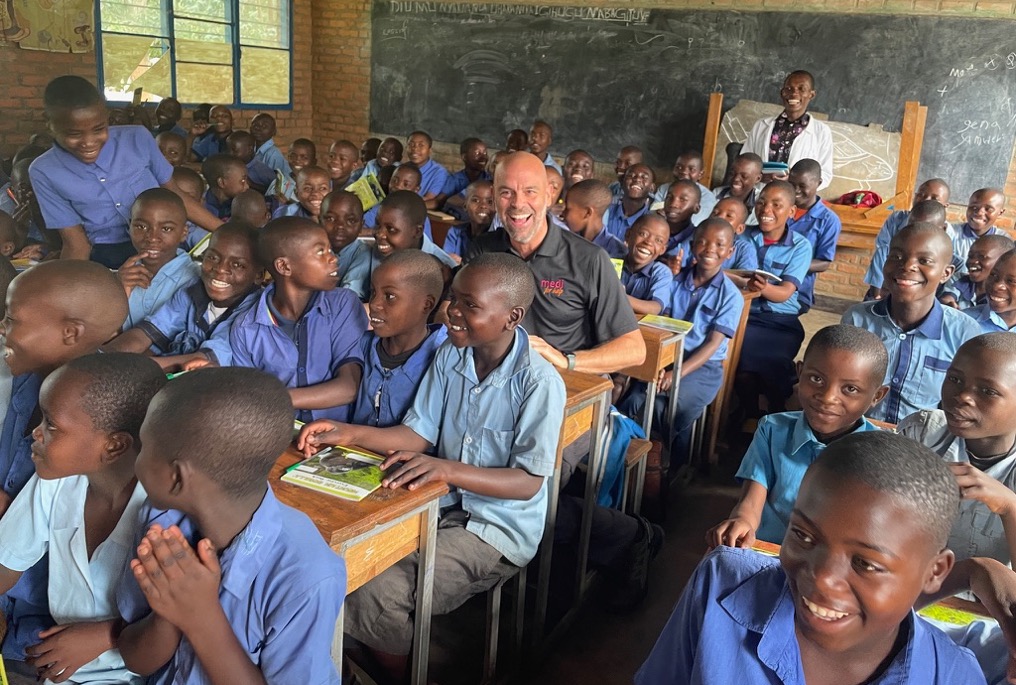
medi for help in Rwanda again: The fight against podoconiosis continues!
In November 2023, Christopher Miles (medi USA) travelled to Rwanda again for medi for help to expand local support for patients with podoconiosis together with the partner organization Heart and Sole Africa (HASA). This time, compression therapy, further education, and practical training were on the agenda – in clinical settings and in schools. Christopher Miles gives an insight into the groundbreaking work of the team and the successes on the ground.
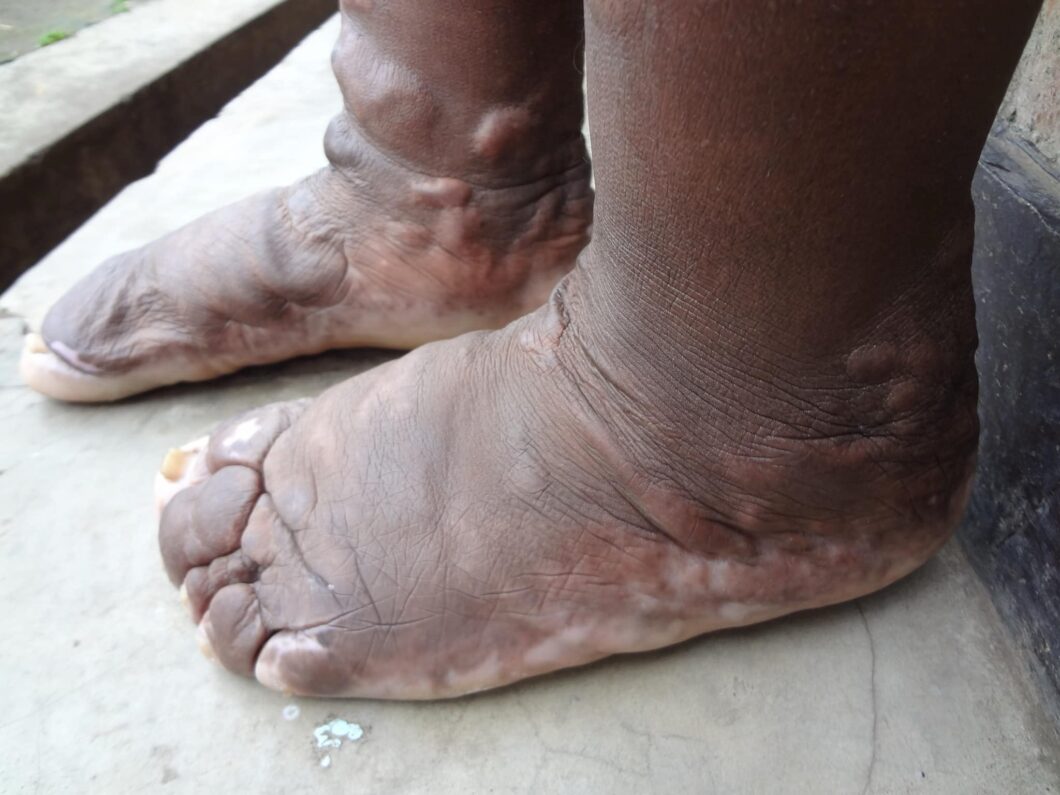
The chronic tropical disease podoconiosis (podo) is also known as non-filarial lymphoedema. Symptoms include extreme fatigue, bilateral swelling of the legs with asymmetrical development, discoloration of the skin and lumpy growths on the toes and feet.
Together with medi for help, the HASA team provided the staff at the partner clinic in Musanze with important knowledge for effective compression therapy: from selecting the right products to customizing fittings for individual patients. Patient education and personalized care were particularly important aspects of the training.
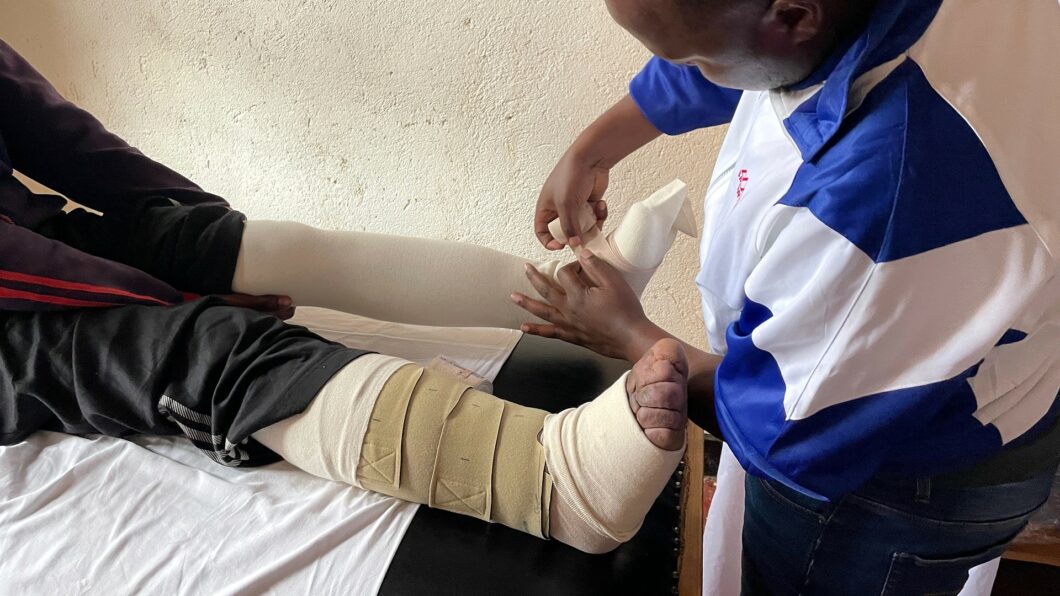
Effective compression fittings: Further training for staff on site
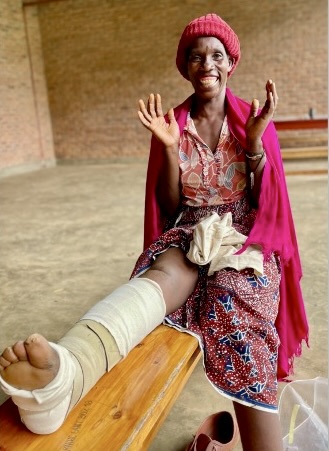
Among other things, creative solutions for challenging foot fittings were demonstrated in detailed training sessions. The circaid compression systems from medi as a daily therapy component proved to be a particularly effective strategy: they effectively reduced even advanced stages of oedema and improved the quality of life of those affected – the introduction of this active compression therapy was a milestone for many locals.
During the visit, local staff were also informed about safety and precautionary measures and the importance of individual patient assessment. The link between the decongestion and maintenance phases was emphasized – and an ongoing treatment plan with regular reviews was implemented.
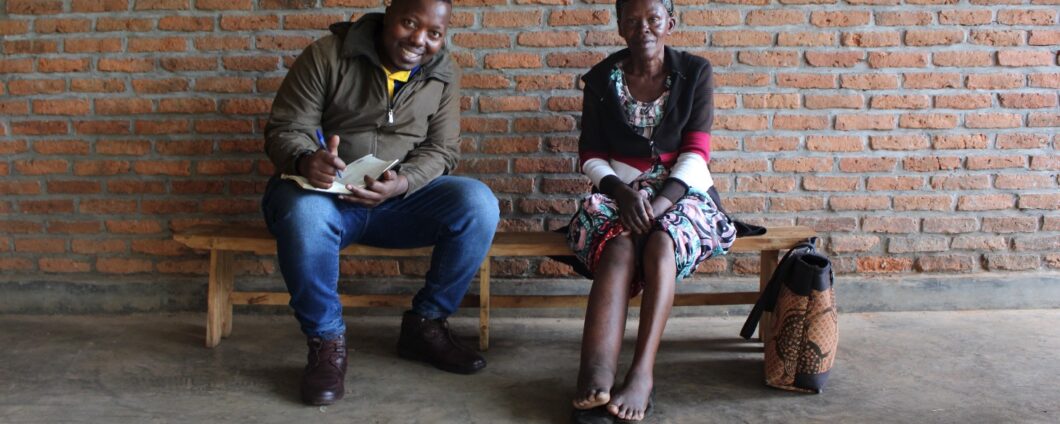
Led by Jacques, the new Compression Manager, the team demonstrated their skills in customizing the circaid reduction kits.
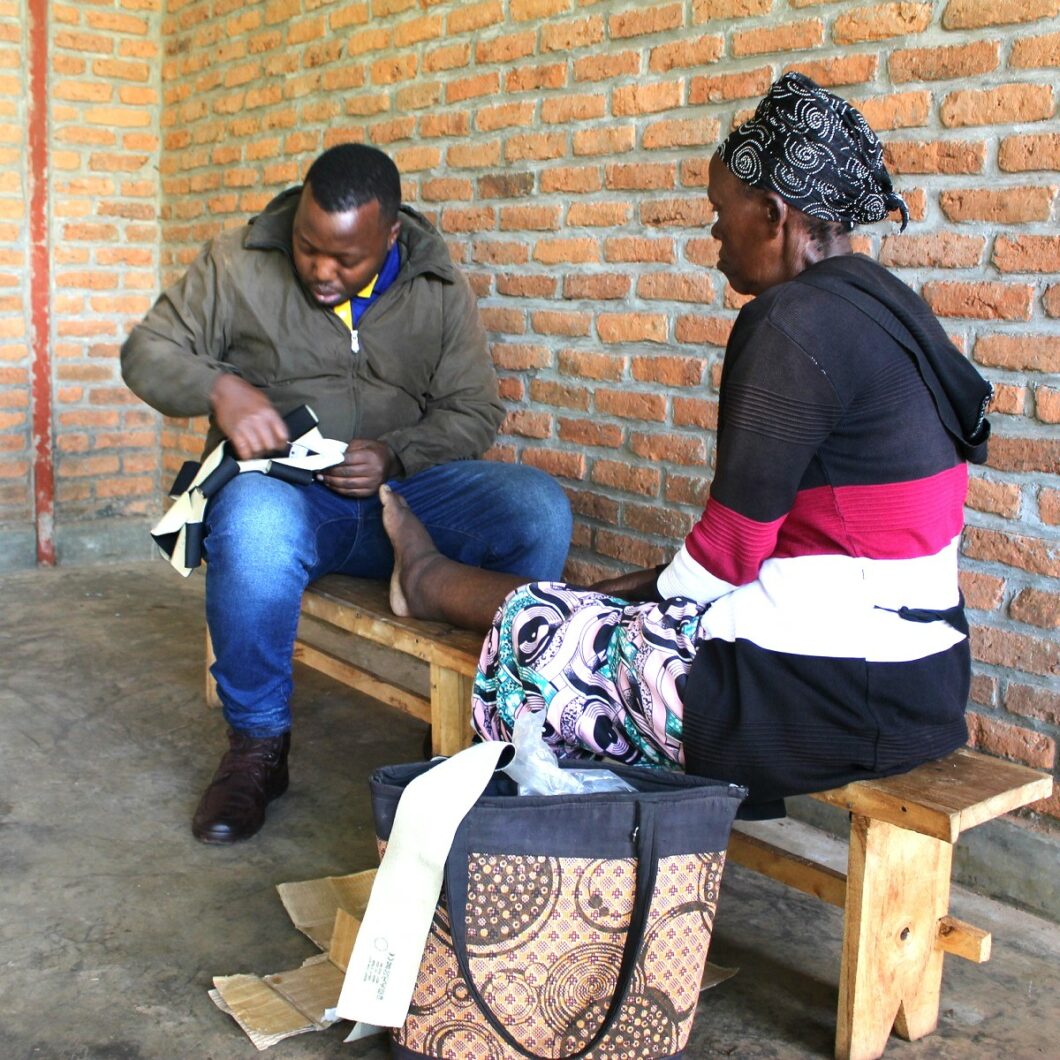
Jacques also demonstrated his newly acquired bandaging expertise, certified by the ILWTI (International Lymphedema & Wound Training Institute), and impressed Christopher Miles
“Jacques only started his accompanying training in compression in August 2023 – and he is already treating patients with severe oedema on a daily basis and helping them to reduce their oedema,” says Miles.
The overarching goal of the project is to establish a new, systematic compression program to provide Podo patients in Rwanda with holistic, comprehensive and long-term compression care.
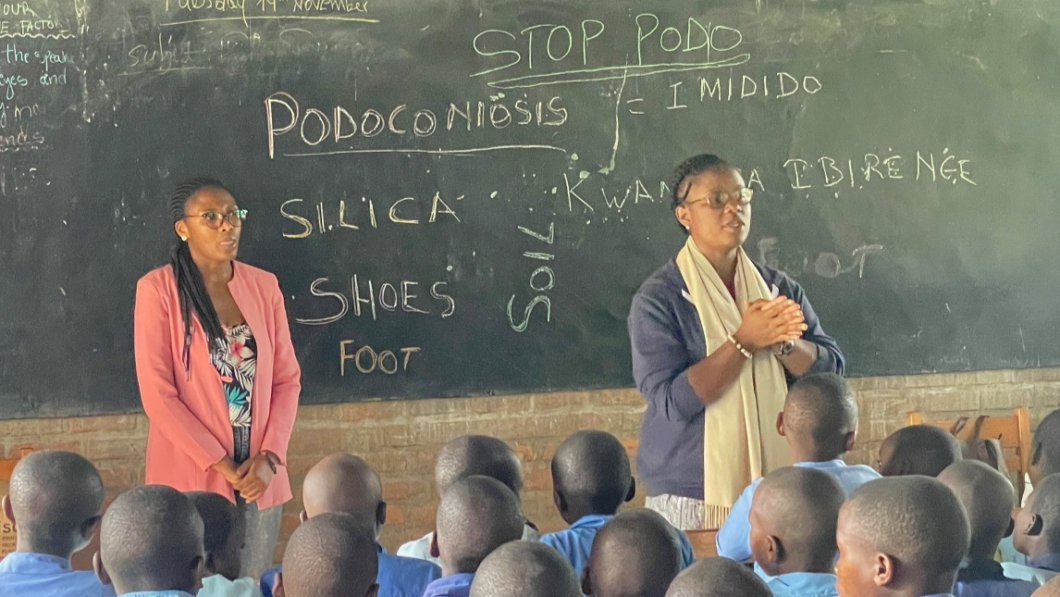
Education in schools: Imparting knowledge about podoconiosis
Together, HAS and medi for help want to gain trust locally and educate patients and their relatives about podoconiosis. This is the only way to ensure that patients are no longer stigmatized.

Christopher Miles visited various locations in Rwanda, including clinics, animal markets and schools. “Using hygiene and wound care as well as permanent compression to combat lymph flow and swelling is something you have to learn! Our partners are therefore currently working with elementary school to offer quarterly lessons on this – a lengthy process with around 3,000 schools in Rwanda,” he explains.
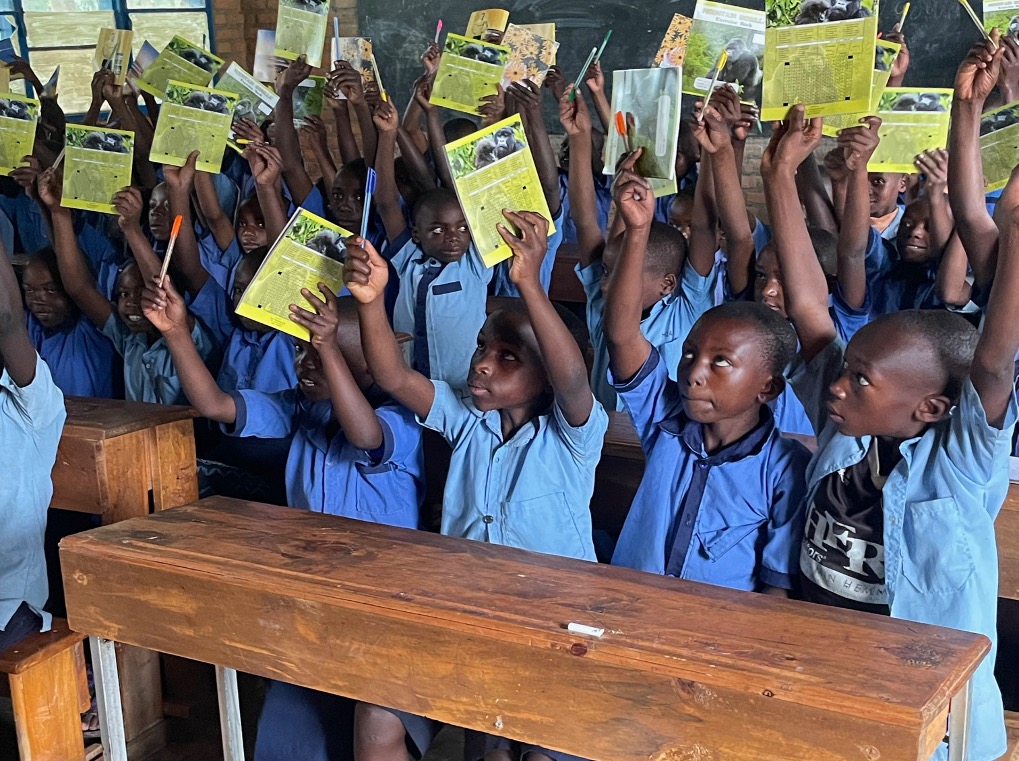
As a rule, 150 to 200 pupils take part in such a training day, and everyone receives a notebook with a pen. A training course costs around 200 euros, including materials and fuel costs.
And when the call “Stop Podo, Stop Podo, Stop Podo!!!” rings out at the end of the training course, we at medi for help know that we’re one step ahead: Now we’re one step ahead again!
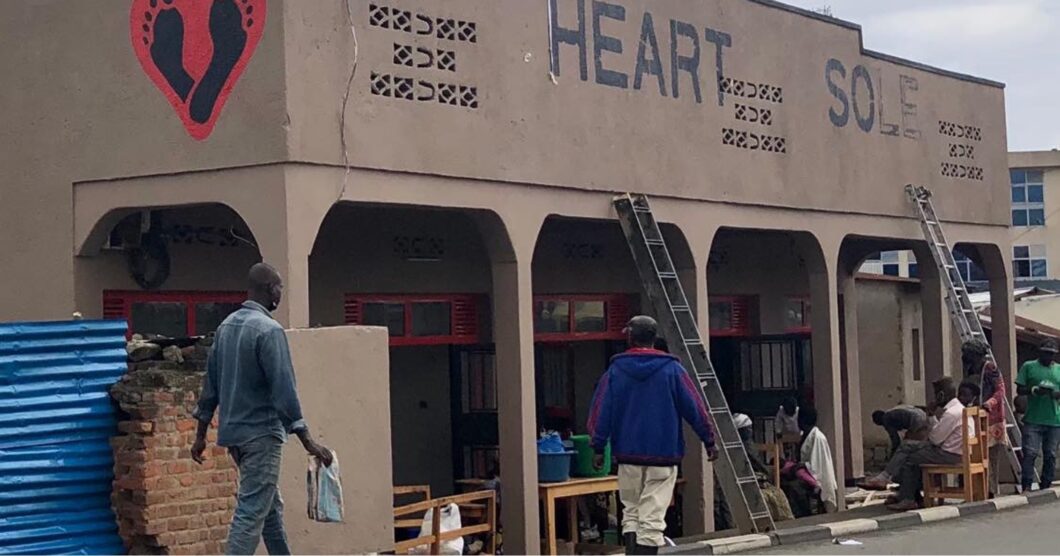
Modernized shoe workshop: Hope for patients
Thanks to the generous support of the Münstersche Kinder-Stiftung, the shoe workshop operated by HASA in Musanze has been modernized – a decisive step in the fight against podoconiosis. This is because sustainable compression therapy fails in around 90 percent of cases due to a lack of footwear.
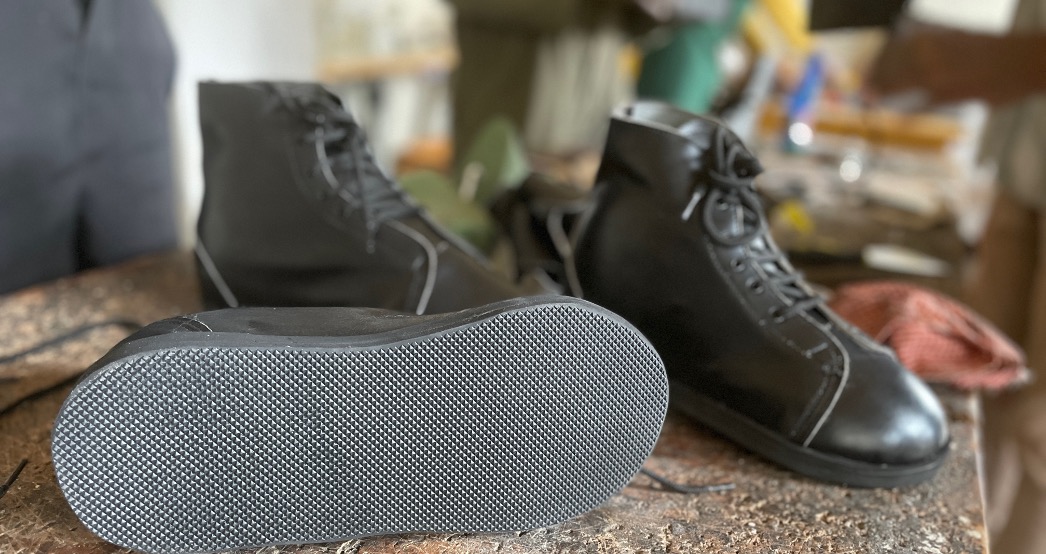
However, closed footwear is essential to protect the feet from further strain and prevent podoconiosis-causing microparticles from penetrating the skin. All staff working in the shoe workshop are individuals with podoconiosis and know the benefit that they bring to the community.
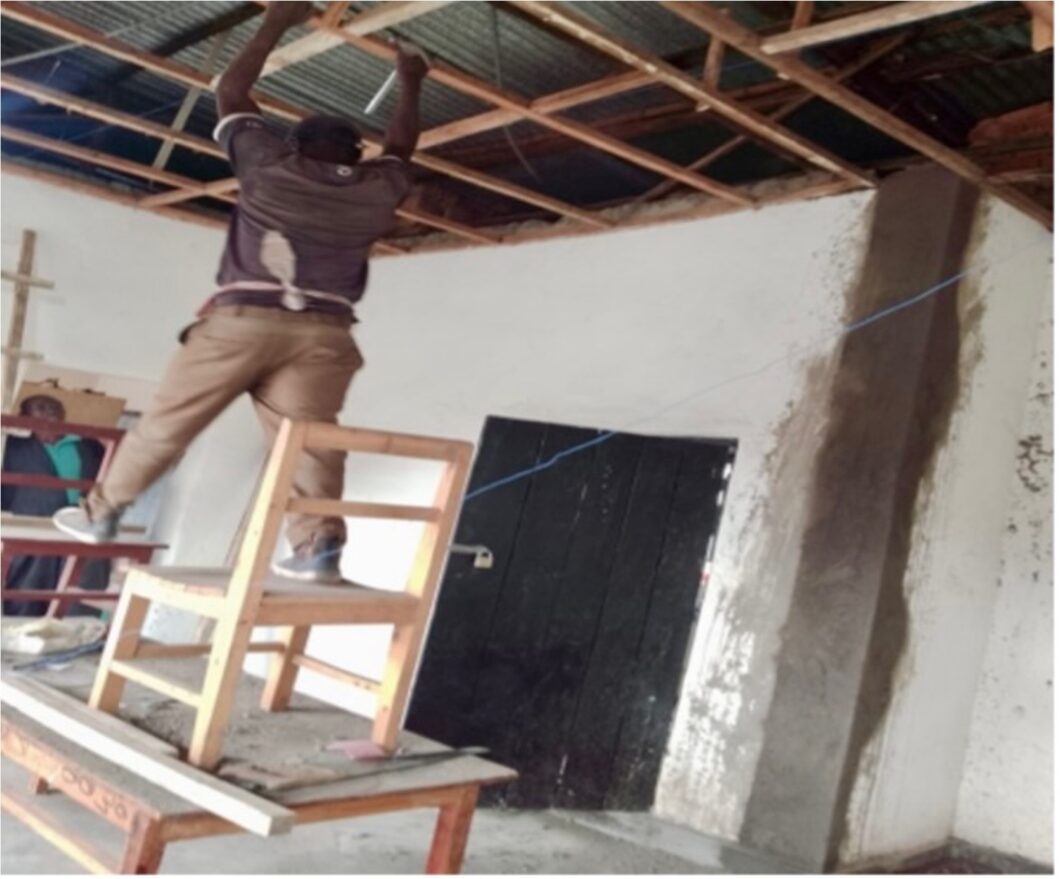
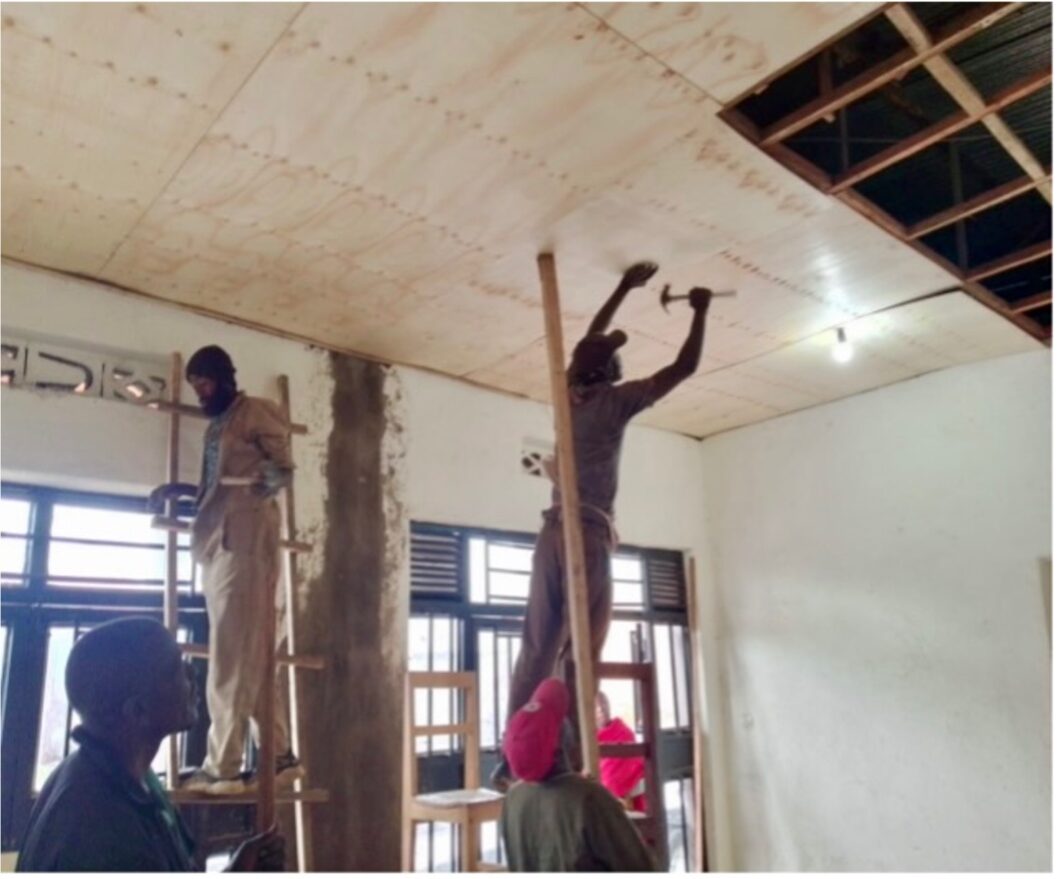
The modernization included remodeling work, setting up a waiting room and warehouse and installing sewing and grinding machines. The material for soles as well as rubber and leather was procured locally with short procurement and transportation routes.
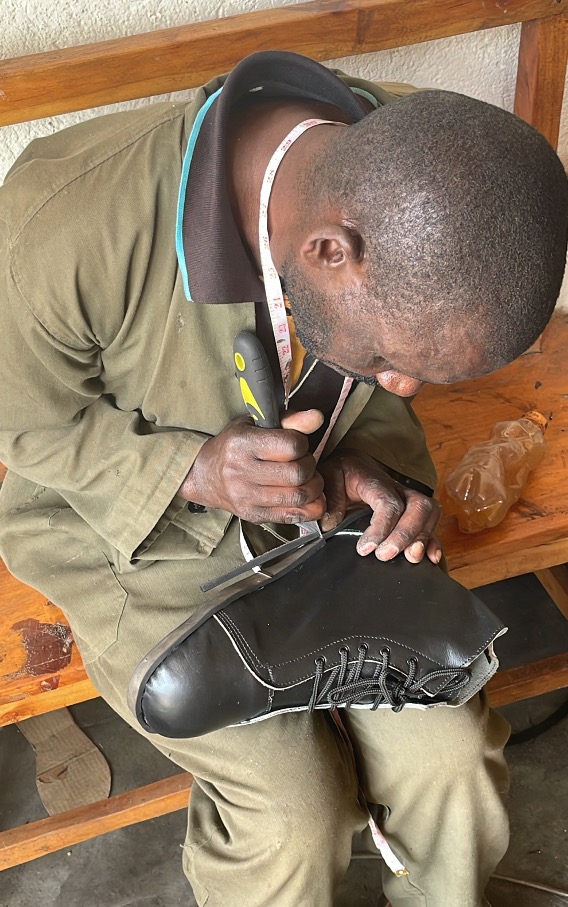
The new workshop is not only used for fitting shoes and aftercare. It improves the patients’ quality of life and strengthens the community – women and children in particular benefit from the support: a great ray of hope for those affected!
Phase II is scheduled for the coming year – the construction of two satellite workshops in remote areas. Financial support and awareness-raising remain crucial to realizing this ambitious project and creating sustainable solutions for those who need them most.
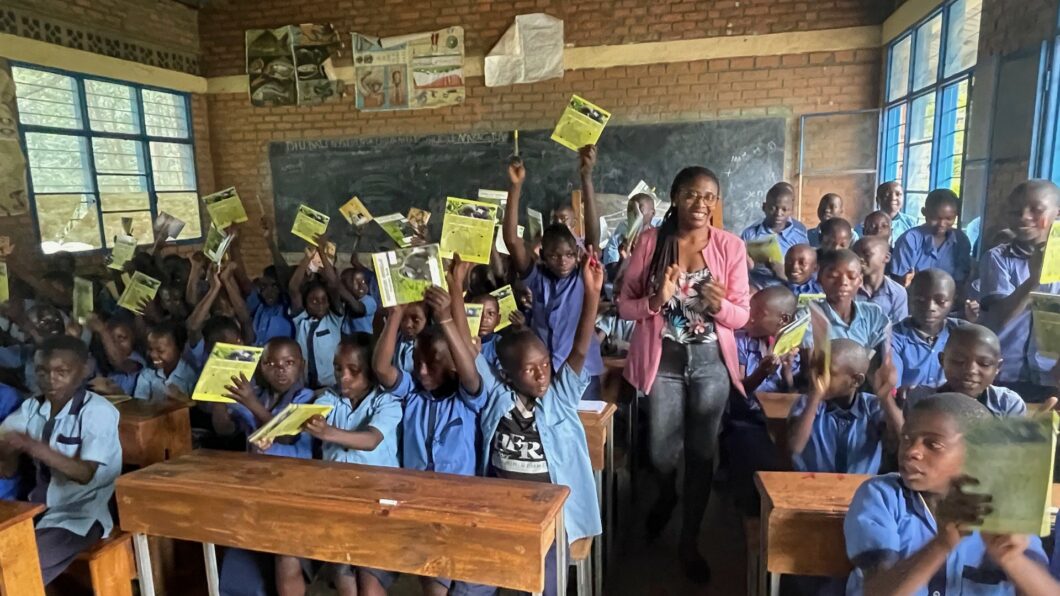
Thank you for your support
The Rwanda trip in November 2023 was more than a humanitarian mission. It was a sign of hope, commitment and change. With your support, we can continue to change lives and help those affected to actively participate in society. Let’s fight together for a better future and give people a smile!